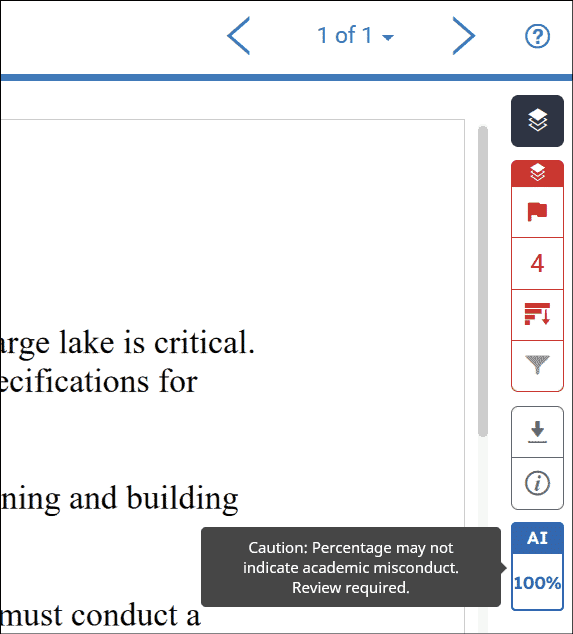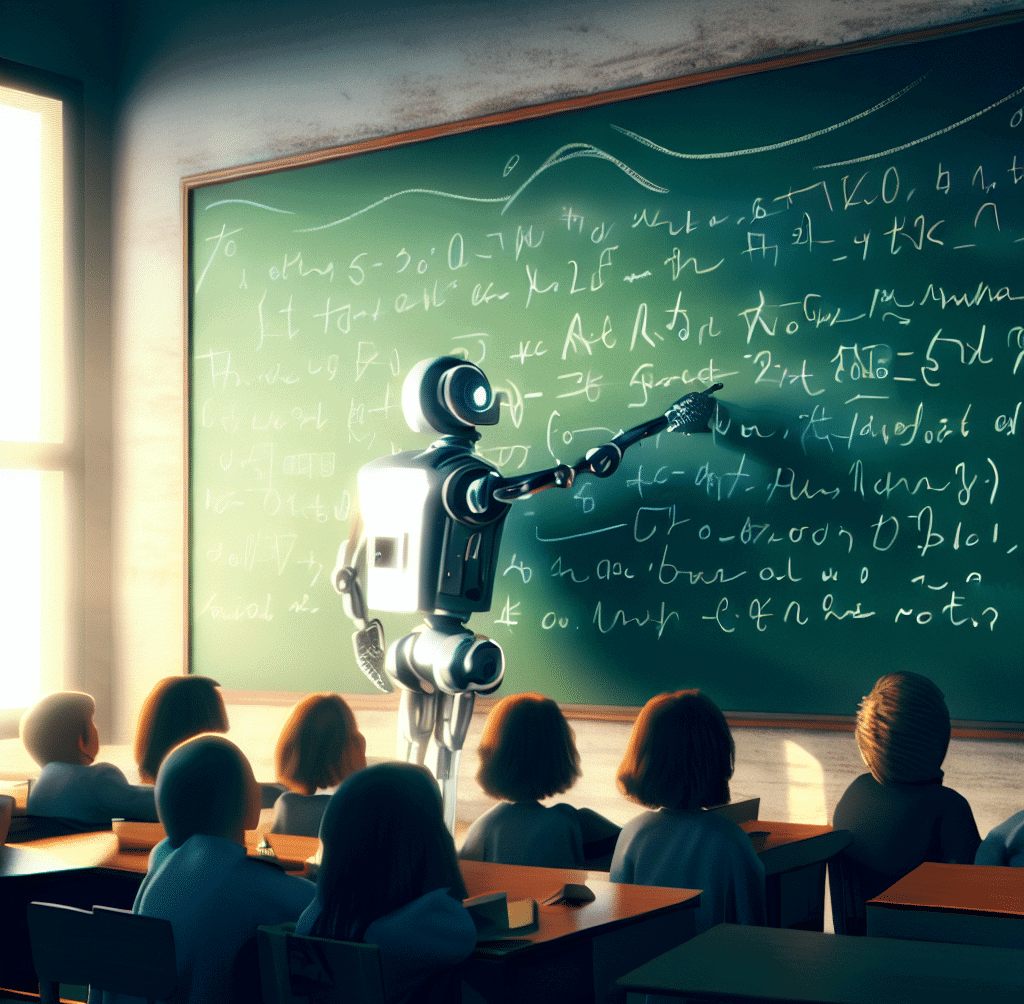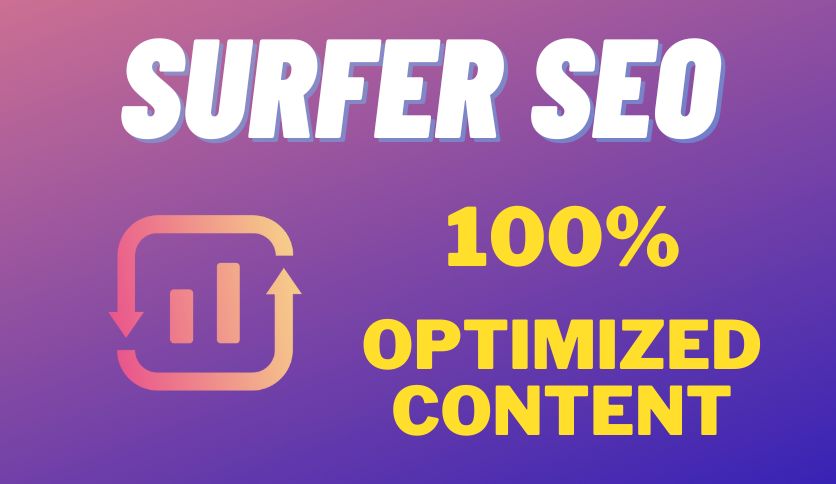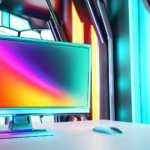Artificial intelligence is more and more generating its way into our everyday lives, and the globe of academia is not immune. With resources like TurnItIn’s new AI detection software alongside AI-created creating resources like ChatGPT, teachers and college students alike are locating themselves navigating uncharted territory.
Educators are expanding far more concerned about college students possibly cheating on assignments employing superior technologies. In response, they are seeking to answers like Turnitin’s new AI creating detection device to fight this problem.
But even though AI detection resources may possibly appear promising at very first glance, they come with their very own set of issues.
More than the subsequent couple of minutes, we’ll dive into the complicated romantic relationship in between AI-driven cheating, AI creating detection technological innovation, and their effect on the two educators and innocent college students who may possibly get caught in the crossfire of false positives.
TurnItIn’s AI Detection Application: A Double-Edged Sword
The new software program is set to be activated for in excess of ten,700 educational institutions in excess of the subsequent couple of weeks, supplying a remedy to counter AI-assisted cheating, but at what expense?
The accuracy of the AI detectors has been known as into query, with Turnitin’s software program offering false positives and not becoming totally reputable in identifying mixed AI and human creating sources.
Substantial college senior Lucy Goetz was shocked when the detector flagged her essay on socialism as likely AI-generated. Educators encounter a dilemma when it comes to AI in schooling: ignoring AI could lead to rampant cheating, but treating AI solely as a risk is shortsighted.
Turnitin’s software program is not foolproof, and AI technological innovation is consistently evolving, generating it hard to preserve up. It would seem as professors are usually evaluating AI detection to ideas like plagiarism checkers.
But… AI Detection is NOT conclusive, it functions based mostly on predictions. I never see how it is honest to accuse college students of some thing when you never have definitive evidence.
Irrespective, some authorities think that the introduction of AI detectors will only outcome in an arms race in between cheaters and detectors… permanently chasing tails for some thing neither will ever entirely catch. But what can be completed about it?


Get this current instance of a university senior at the UC Davis: William Quarterman, was accused of cheating on his history exam soon after his professor utilized an AI detection device, GPTZero, which claimed his solutions have been AI-created.
Quarterman denied the allegations and skilled panic attacks as he had to encounter the university’s honor court. He was at some point cleared of the accusation soon after supplying proof that he did not use AI.
As increased schooling institutions struggle to handle the growing use of AI by college students for assignments and exams, the dependability of AI-driven detection software program is becoming questioned.
Richard Culatta, CEO of the Global Society for Technologies in Training, suggests that universities must not elevate these situations to disciplinary action but alternatively apply recommendations and request college students to demonstrate their function just before generating accusations. He emphasizes that educators must understand to function with AI rather than banning or fearing it, as it swiftly evolves.
The advantages of employing AI detection tools are undoubtedly interesting for educators seeking to preserve academic integrity. These techniques can assign “created by AI” scores and complete sentence-by-sentence evaluation on pupil assignments, supplying insights that might not be obvious via human evaluation alone. But how correct would this even be?
In concept, this must deter college students from relying on AI-created creating in their coursework and motivate them to build their very own ideas and arguments. But college students certainly does not constantly abide by the most ethical point to do.
The charge of false positives from AI detection resources is not zero, and creators of these resources like OpenAI, Turnitin, Articles at Scale, and GPTZero, warn educators about feasible inaccuracies. As a outcome, schooling technological innovation authorities advocate that colleges embrace AI and build policies all around its use, like citing AI when proper, generating assessments far more rigorous, and figuring out the proper concerns to request when a pupil is suspected of cheating.
Nevertheless, there is a flip side to these rewards, as the prospective dangers of relying also heavily on AI detection turn out to be more and more evident:
False Positives
As witnessed in Goetz’s situation described in the Washington Post article, detectors can at times get it incorrect – with possibly disastrous consequences for innocent college students. When Turnitin flagged a portion of her authentic essay as most likely becoming created by ChatGPT, it raised significant worries about false accusations based mostly on imperfect technological innovation.
Detectors Launched With out Widespread Vetting
The fast implementation of Turnitin’s AI detection software program across educational institutions raises concerns about no matter whether enough testing has been carried out to make sure its accuracy and fairness. For instance, the Washington Publish columnist identified a number of California substantial schoolers’ papers falsely recognized as fabricated by Turnitin’s new detector.
This is enormous. It truly is like TurnItIn just hopped on the wave of AI detection and launched some thing that can harm hundreds of thousands of college students, and do we genuinely know the extent of their vetting approach?
Swiftly Evolving AI Technologies Outpacing Detection Equipment
As mentioned in the USA Right now post, creators behind detection resources like GPTZero acknowledge their systems’ fallibility due to continuous developments in AI-created content material methods. In addition, newer versions of well-known creating bots this kind of as ChatGPT (e.g., GPT-four) or Google’s Bard might currently surpass the detection abilities of present resources.
A single instructor, who wishes to stay unnamed, expressed their concern for the present accuracy degree of TurnItIn’s AI detection device:
“Turnitin is claiming 98 % accuracy. But in prior three days of my testing, I really feel it is far more like 60%. A single of my papers (published in 2020) was flagged as AI written. Similarly, some prompts created content material which was flagged as human written. I am just appalled that some professors preserve pondering AI detection is comparable to plagiarism detection even although it is not.”
The Consequences of Incorrectly Flagged College students
When college students are falsely flagged by AI detection resources, the consequences can ripple past mere academic repercussions. Innocent college students caught in this crossfire might encounter a selection of adverse results that could effect their schooling and total properly-becoming.
The effect on pupil-instructor relationships
When college students like Goetz are wrongly accused of cheating, the believe in they have created with their teachers might be substantially broken. Teachers perform a pivotal part in fostering an setting conducive to studying, and mutual believe in is a basic element of that romantic relationship.
A false accusation can generate a sense of doubt in the teacher’s thoughts, possibly major them to scrutinize potential assignments from the impacted pupil far more critically than other individuals.
College students who knowledge unjust accusations might really feel alienated or unfairly targeted by their instructors, which can outcome in disengagement from class pursuits or reluctance to look for aid when required.
These strained relationships could lengthen past person college students and teachers, impacting classroom dynamics as other college students turn out to be conscious of prospective inaccuracies in AI detection resources. In some situations, this kind of awareness might also lead to doubts about honest grading practices or enhanced skepticism concerning educators’ reliance on AI-based mostly answers.
It truly is essential for institutions implementing Turnitin’s AI-integrated platform and comparable resources to understand the value of fostering powerful pupil-instructor bonds and get energetic actions towards making sure correct evaluations even though minimizing prospective harm arising from incorrect flagging.
Unfair punishments and broken academic reputations
When college students like Quarterman are falsely accused of cheating due to the inaccuracies of AI detection software program, they might encounter a selection of unfair consequences that could negatively effect their educational journey. These consist of failing grades on assignments or exams, disciplinary actions this kind of as academic probation, suspension, or even expulsion in extreme situations.
This kind of unjust punishments can tarnish a student’s academic record and pursue potential possibilities. Bad grades resulting from incorrect cheating accusations may possibly hinder students’ odds of securing scholarships or becoming accepted into aggressive university packages.
A background marked by disciplinary actions due to alleged academic dishonesty could lead prospective employers or graduate colleges to query the applicant’s integrity in the course of evaluations.
In addition to these tangible results, an undeserved blemish on one’s academic popularity might have extended-lasting repercussions on self-esteem and self confidence in their talents.
College students who knowledge false allegations may possibly turn out to be far more hesitant to get dangers in their scientific studies out of worry that they might yet again be flagged erroneously.
To avert these detrimental outcomes for innocent college students caught in the crossfire of flawed AI detection resources, it is vital that educational institutions contemplate implementing robust evaluation processes alongside AI detection answers. By combining human experience with AI developments, educators can aid lessen wrongful accusations even though nevertheless upholding academic integrity specifications.
If an assignment comes back as twenty% AI-created, it does not indicate twenty% of it was written with AI. twenty% AI-created signifies there is a twenty% likelihood the post you happen to be seeking at has been written with AI. The percentages can be a bit deceptive so it is extremely critical to learn how AI detection works.
The emotional toll on college students wrongly accused of cheating
Past the useful consequences, becoming falsely accused of cheating can have a profound effect on a student’s emotional properly-becoming. Wrongful accusations can set off anxiousness, pressure, and self-doubt amid impacted college students. In Quarterman’s situation, he skilled “total-blown panic attacks” in the course of his ordeal with the university’s honor court soon after becoming wrongfully accused.
This kind of emotionally distressing experiences can be detrimental to a student’s psychological well being and contribute to their total academic struggles.
The emotional burden positioned on innocent college students caught in false positives emphasizes the value of making sure that AI detection resources are utilized responsibly and ethically inside of educational settings.
Institutions must contemplate implementing complete help techniques for the two educators and college students when making use of AI detection software program. These help techniques may possibly consist of clear recommendations for employing this kind of technological innovation alongside human judgment, education packages for educators on interpreting outcomes accurately even though taking into consideration context, and supplying assets for college students who might be dealing with false accusations so they can properly advocate for themselves in the course of any investigative approach.
By tying with each other all of these approaches, educators can aid lessen wrongful accusations even though nevertheless upholding academic integrity specifications. This holistic strategy not only preserves the fairness and believe in integral to academia but also guarantees that innocent students’ emotional properly-becoming stays a priority all through their educational journey.
Testing TurnItIn’s AI Detection Application: A Mixed Bag of Final results
As educational institutions depend far more heavily on AI detection resources like Turnitin’s software program, it gets more and more crucial to assess their efficacy and limitations via true-globe testing. This evaluation can supply beneficial insights into the useful functionality of this kind of techniques, shedding light on prospective shortcomings and regions for improvement.
In a single certain situation highlighted by the Washington Publish columnist, 5 substantial college college students volunteered to aid check Turnitin’s AI detector by making sixteen samples of essays. These essays comprised a combine of authentic pupil function, AI-fabricated content material from ChatGPT, and pieces featuring mixed-supply creating from the two human and AI sources.
By operating these samples via Turnitin’s technique, we have been capable to see how the software program judges a tiny sample of pupil function.
The check outcomes unveiled specific limitations in Turnitin’s potential to accurately determine AI-created creating:
- Exact identification of only 6 out of sixteen samples – In this experiment, Turnitin accurately recognized significantly less than half (37.five%) of the complete submissions.
- Partial credit score for 7 samples with mixed accuracy – Even though the technique was directionally appropriate in some cases, it failed to entirely determine or distinguish in between human-written sentences and people created by ChatGPT.
- Failure on 3 samples, like a false constructive – Possibly most regarding was the instance in which the technique flagged Goetz’s authentic essay as becoming partly created by ChatGPT when it was totally her very own function.
TurnItIn Claims 98% Detection Accuracy and Significantly less than one% False Positives
Regardless of these notable discrepancies identified in the course of testing, TurnItIn claims that its detector is 98 % correct total based mostly on its inner assessments. The business also states that circumstances like Goetz’s case—false positives—occur significantly less than one % of the time. I am not very confident how you can declare virtually one hundred% detection accuracy on some thing that is not in fact provable.
Offered the useful implications for college students and educators, even a tiny percentage of false positives could have extreme consequences. one% of a million college students acquiring falsely flagged is nevertheless substantial, specifically at the university degree.
Turnitin’s software program should be monitored to make sure they supply correct and honest evaluations even though minimizing prospective harm to innocent college students caught in their net. This attribute nevertheless demands far more tweaking and demands to plainly educate teachers and professors on what the percentages and detection prices stand for.
How Dependable is TurnItIn AI Detection?
The detection device is pretty reputable. This does not indicate correct, it just signifies you are going to get all around the exact same score when testing extremely comparable content material.
How Exact is TurnItIn AI Detection?
It might be reputable (you are going to get the exact same score testing comparable content material), but you can not declare it is correct. You can not show anything at all is written with ChatGPT.
You are genuinely just seeking at phrases on a display.
You might get some insight, specifically if sentences match patterns effortlessly replicable by AI/ChatGPT, but if TurnItIn accuses a pupil of employing AI and pupil in fact fail lessons simply because of it – there will undoubtedly be a ton of lawsuits that pop up in excess of the subsequent 12 months.
They declare they may possibly flag a human-written document as AI-written for a single out of each one hundred entirely-human written paperwork. This is not excellent adequate in my viewpoint.
A massive university lecture hall has at least 300 college students. You are telling me three of them are going to get written up for employing ChatGPT just simply because a detector informed the professor so?
Does TurnItIn Detect AI Creating?
The quick response is yes, though not all teachers are in fact going to use the attribute. The detection device supplies reviews to educators & integrates immediately with well-known studying management answers like Canvas, Blackboard, and Moodle.
Teachers are capable to examine for AI creating by way of TurnItIn’s Similarity report (what they also use to figure out if a pupil is plagiarizing)
The Dilemma Dealing with Educators
As AI-created cheating gets a growing concern in academic settings, educators uncover themselves grappling with the challenge of keeping integrity without having relying solely on possibly faulty AI detection resources.
Teachers should strike a delicate stability in between discouraging dishonest practices and making sure fairness to all college students. They require to uncover techniques to assess pupil function accurately even though minimizing the danger of false positives that could harm innocent students’ academic information or emotional properly-becoming.
It can be valuable to draw parallels in between the adoption of AI creating technologies and the widespread use of calculators inside of academia. Each resources serve as beneficial aids for studying when utilized responsibly, but they also existing possibilities for misuse or in excess of reliance by college students in search of shortcuts alternatively of actually knowing ideas. As this kind of, locating techniques to integrate these potent resources into schooling ethically and responsibly is an ongoing debate amid educators.
The reluctance of some institutions to show AI creating scores
Recognizing prospective pitfalls in employing Turnitin’s technological innovation, two % of its buyers have picked not to consist of the “Generated by ChatGPT” score alongside other suggestions aspects in their report summaries.
A significant majority of United kingdom universities, in accordance to UCISA are cautious about embracing new technological innovation without having sufficient knowing or safeguards in location, major them to stay away from displaying possibly misleading details derived from AI detections when assessing pupil function.
This dilemma highlights that even though leveraging technological innovation developments can advantage educators, locating a stability that guarantees accuracy and fairness stays essential for safeguarding innocent college students who may possibly be caught up in flawed techniques.
Feasible Answers and the Potential of AI in Training
This is not an straightforward remedy. We’re going to hit the level in the subsequent couple of months (or 12 months at the most current) in which it is fairly a lot extremely hard to decipher between human and AI written content.
By making partnerships in between these institution resources and colleges, the two events should function with each other to refine detection resources, lessen false positives, and build answers that seamlessly integrate with academic environments. I never believe it is going to be straightforward, but it is a always ethical stage.
Colleges could contemplate revising assignment formats, selling a culture of academic integrity, or implementing honor codes as approaches for discouraging dishonest habits without having the in excess of reliance on AI detection software program.
Educators must also understand the prospective advantages AI resources offer you in improving educating and studying experiences even though also addressing the issues they deliver regarding academic integrity. It would seem like a lot of are caught in their techniques
Last Ideas
I believe we’re extremely shut to an educational firefight. If this trend continues and detection is promised but inadequately deployed, there will be tons of lawsuits across the globe from dad and mom unhappy with unfair punishments.
Of program there will be college students acquiring caught who wrongfully abuse AI to submit their college function, but even punishing a single pupil who did not cheat is definitely horrible.
This is not plagiarism, we never genuinely have evidence. Patterns and assumptions are not going to be adequate to encounter the wave of what is about to come. It truly is nearing the finish of the spring phrase now but when fall will get right here, we’re in for a wild trip…




